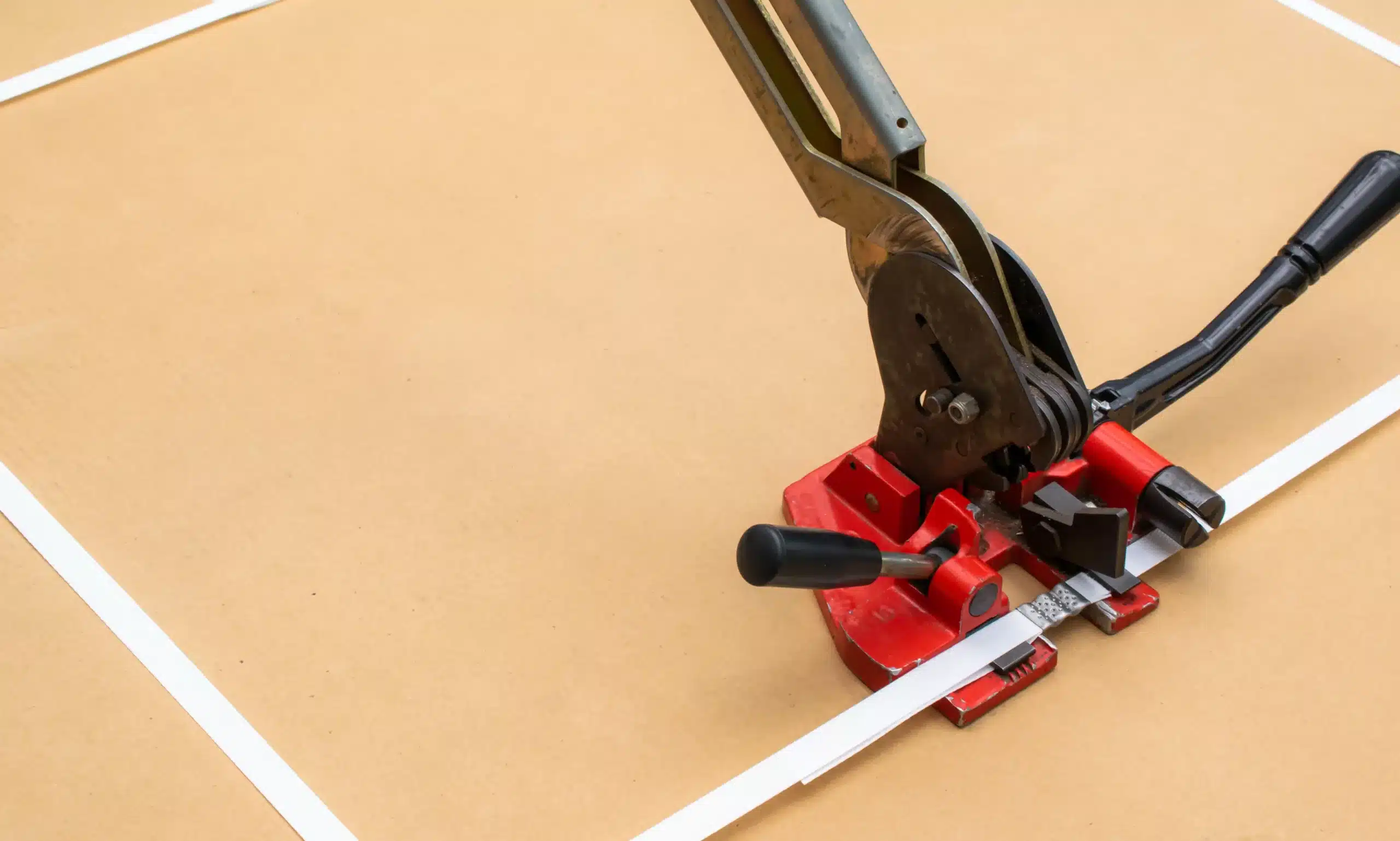A guide to strapping and pallet banding

Your products deal with numerous hazards before arriving to your customer; from knocks to tumbles, keeping your product (and its packaging) safe is a simple method to minimise returns.
Two popular methods for securing items together are strapping and banding! Their job is to keep products from shifting or becoming damaged during transit.
Whether you’re packing products for shipping or storage, choosing the right materials and techniques can make all the difference. In this guide, we’ll cover everything you need to know about strapping and banding, including the different types of materials, the tools and equipment you’ll need, and tips for selecting the right methods for your specific packaging requirements.
- 1.
- 2.
- 3.

What is strapping used for in packaging?
Strapping, also known as banding or pallet banding, is a vital part of product packing and distribution. It is used primarily to secure pallets and to bundle items in transit. The choice does vary but comes down to two main categories – metal and plastic.
What is strapping made from?
Most metal strapping is made from steel, and most plastic types are made from either polypropylene or polyester.
Traditionally, steel is used to ship heavy-duty items, such as bricks or timber. Plastic is deemed more suited to the palletisation of lighter-duty products. It is also applied directly to cardboard boxes to improve handling.
Types of application
There are two ways strapping and pallet banding can be applied:
- Manual application is when strapping is applied by hand directly or using a manual dispenser and secured manually using a hand-help tensioning or sealing tool.
- Automated application is when the application of strapping uses some sort of machinery. This could include semi and fully automated machines, friction welders and battery-powered tools, and semi and full-automated strapping tables.
Both polyester and steel strapping are hand-applied. Polypropylene strapping can be either hand or machine applied.
Four ways to speed up strapping application:
- For low-volume applications, use manual tensioning, cutting, and sealing tools.
- To speed up the manual process, switch to a battery-operated friction welder, which tensions, cuts, and seals at the touch of a button
- Semi-automatic strapping machines are recommended for higher volume, single-product runs. They apply quickly but require the operator to feed the strapping around the pack.
- Fully automated machines are well suited for high-volume use where packages vary in shape and weight. No intervention is required and applied in seconds.

Products
We offer a wide range of strapping and pallet banding products, including those made with polypropylene, polyester, and steel. Incorporating different types of application methods, such as hand or machine; we can provide dispensing equipment too, making application a breeze.
Below you will see a small range of what we have to offer; if you are looking for a specific type, please get in touch with us today!
- Polypropylene Machine-Applied – Light, flexible and easy to handle, it offers excellent performance and reliability for most strapping tasks, with no staining or rusting of the product or package.
- Hand-Applied Polyester – Polyester strapping is a robust yet soft, lightweight, and weather-resistant alternative to steel. It takes 2.5 times more energy to break than steel with the same break strain. An ‘elastic memory’ maintains tension even with pack settlement or shrinkage.
- Hand-Applied Corded Polyester – A soft, lightweight, strong and weather-resistant alternative to steel strapping, with a textured finish for an ultra-firm grip.

Common questions about strapping and banding
Below we have listed some popular questions about strapping and pallet banding, but if you have any more queries that are not listed, our team of experts will be happy to help you.
Strapping automation
We can offer a full range of packaging automation solutions to help take your business to the next level, including strapping and banding automation.
Our services cover reviewing your operation and recommending, testing, and supplying packaging machinery for your business.
Imagine the time and effort of assembling, packing, sealing, and dispatching your products. Automating your process can dramatically improve productivity, help you control material use, cut waste, and allow you to future-proof spikes in demand.
Carefully planned packaging automation will make your business more resilient and flexible year-round!
Can I have strapping printed with my logo?
If pallet security, product tracking or branding is essential to you, consider custom options that can help! Contact us to learn more.
Which strapping is best for your business?
The kind of strapping you need will depend on your sealing product.
For a recommendation tailored to your packing processes and product, contact us to speak with one of our packaging experts, who will help you determine the best strapping option for your requirements. If you want any other packaging advice, why not contact us today?
